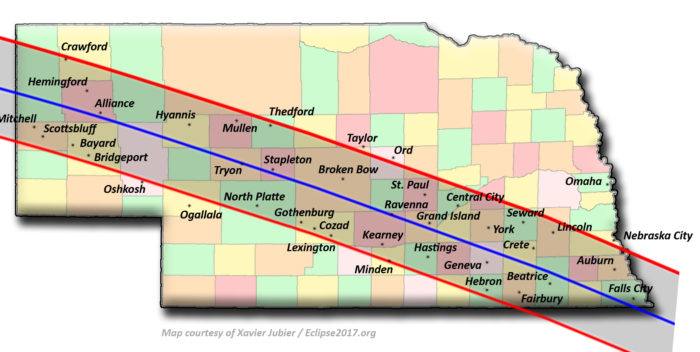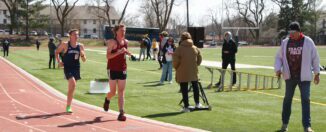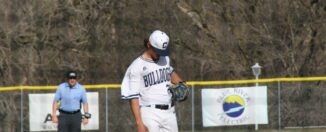Concordia to celebrate total solar eclipse with 2300 guests
By Abigail Wisniewski
Did you notice a little extra traffic on your way back to Concordia? The highways are not just full of excited Concordia-bound students and parents, but also 2300 students, teachers, parents, and visitors travelling to witness the total solar eclipse, which will happen at approximately 1 p.m. on August 21st.
“We are thrilled that… students, educators and parents for grade schools and high schools across Nebraska will join on campus us for this spectacular event,” Friedrich said. “I hope every student, faculty and staff member will join us in Bulldog Stadium for the entire event!”
Seward falls along the path of totality, meaning that the sun will be completely eclipsed, whereas other parts of the country will only be able to view a partial eclipse.
“If there’s a school that’s outside the band having class that day and they want to allow their students to experience it, they need a place to go,” Dr. Brent Royuk said. “We see this as a service we can provide since we’re fortunate to be inside that band,” Royuk will be providing commentary with Dr. Robert Hermann during the event.
Places on the path of totality– which Seward falls along– will have an entirely different experience than those only viewing a partial eclipse.
“Even a tiny part of pure sun lights up the world pretty well,” Royuk said. “Here in the path of totality we get to have the sun pretty blacked out.”
In the path of totality, which is only about 70 miles wide, stretching from Oregon to South Carolina, viewers can also expect to experience a drop in temperature, visible stars, and nocturnal animals and crickets beginning to stir. Viewers in Seward will have the added bonus of viewing the eclipse while the sun is at its highest point in the sky. The eclipse will also make the shadows of other solar objects that would normally be hidden visible.
Though some may try to capture the event on camera, Royuk warned that the event may be too great for a camera to accurately depict.
“The human eye has an excellent dynamic range of seeing very bright to very dim things,” Royuk said. “Our eyes have a much broader range than cameras do, so you can’t take a picture of the solar eclipse and see what the human eye is seeing in person. That’s another reason to really prioritize getting into that band of totality.”
Not only will students be able to view a total solar eclipse for the first time on mainland since 1979, they will also get the once-in-a-lifetime experience of classes being cancelled on the first day.
“The Psalmist reminds us “the heavens declare the glory of God, and the sky above proclaims his handiwork” (Psalm 119:1). Pausing from our normal schedule on the first day of the academic year allows the entire community to praise and worship the God of all creation and to see and experience first-hand His orderly design in nature,” President Brian Friedrich said in an email interview.
President Friedrich, Director of Alumni and University Relations, Jennifer Furr, Dr. Royuk, and Dr. Hermann have been preparing diligently for the event and hope that the guests will enjoy an environment of excitement, enthusiasm, and learning,” (Jennifer Furr). The festivities will begin at 11 a.m. for chapel on the football field, where Pastor Ryan Matthias and Dr. Royuk will be giving a message about Psalm 119.
“When I read Psalm 119 I think of the beauty of the sky and the planets…this is a show like no other,” Royuk said. “We as Christians can appreciate the astronomical facts and increase our understanding…and appreciate it as a revelation of the wonder of God’s creation,” Royuk said. “The totality is really something special and as a scientist who is a Christian, it really excites me to share the wonder of God.”
Students are asked to sit on the football field turf, leaving room for our guests on the bleachers. In the meantime, Royuk encourages students, “Pray for clear skies!”














